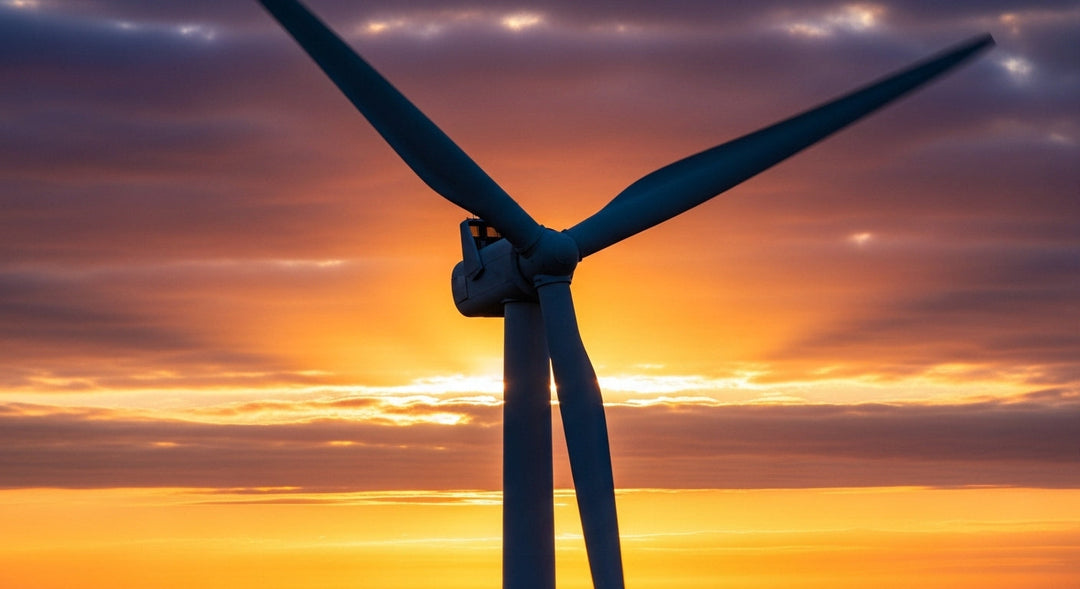AI: The Catalyst Accelerating the Energy Transition

With the pressing need to mitigate the effects of climate change, the transition towards renewable energy sources has taken center stage. An integral player in this pivotal shift is Artificial Intelligence (AI), which is proving to be a transformative force in accelerating the energy transition. The global AI in renewable energy market size was just under $15 billion in 2023, and we expect it to surpass $100 billion by 2032, growing at roughly 30% annually.
Predictive Analytics in Renewable Energy
AI's contribution to the energy sector is multifaceted, with its impact felt across different phases of the energy system, from generation and storage to transmission and consumption. AI algorithms are crucial in predicting energy production at the core of renewable energy systems, such as solar and wind power.
Predictive models leverage historical data and real-time weather information to forecast energy output accurately. This predictive capability is vital for integrating renewable sources into the grid effectively, as it helps balance supply and demand, reducing the reliance on fossil fuel-powered standby plants.
AI can also play a significant role in agriculture. Companies use AI for precision agriculture, including optimizing planting, watering, and harvesting to reduce waste and improve yields with minimal environmental impact.
Optimizing Energy Storage and Efficiency
AI is instrumental in optimizing energy storage systems. As renewable energy sources like solar and wind are intermittent, storage is essential to ensure a steady and reliable power supply.
Algorithms enhance the efficiency of batteries and other storage technologies by optimizing charge-discharge cycles based on usage patterns and grid demand. This optimization extends the lifespan of storage systems and maximizes the utility of stored energy, contributing to a more resilient and flexible power grid.
Applications related to AI can help municipalities and smart cities lower operating costs and improve sustainability. AI helps analyze water usage patterns, detect leaks, and predict water supply needs, contributing to more sustainable water management practices.
AI-driven companies in waste management use image recognition and sorting technologies to improve recycling processes, optimize waste collection routes, and develop more efficient waste-to-energy solutions.
Enhancing Consumption and Smart Grids
In addition to enhancing renewable energy production and storage, AI significantly improves energy consumption patterns. Smart grids, powered by AI, dynamically adjust the flow of electricity to where it's needed most, improving the grid's efficiency and reliability.
On the consumer side, AI-driven technologies, such as smart thermostats and energy management systems, enable individuals and businesses to monitor and adjust their energy usage in real-time, leading to significant energy savings and reduced carbon footprints.
Predictive Maintenance and Infrastructure Reliability
AI's potential to transform the energy sector extends to predictive maintenance of energy infrastructure. By analyzing data from sensors installed in power plants and transmission lines, AI algorithms can predict equipment failures before they occur, minimizing downtime and preventing potential disruptions in power supply.
According to McKinsey & Company, AI and digitization can increase asset productivity by up to 20% while reducing maintenance costs by 10%. This proactive approach to maintenance enhances the reliability of the energy system and reduces costs associated with repairs and unplanned outages.
Navigating the Transition with AI
The integration of AI into the energy sector presents an opportunity. Data privacy, cybersecurity, and the need for significant investment in AI technologies and infrastructure must be addressed. The transition to AI-driven energy systems also requires a skilled workforce capable of developing and managing these technologies, highlighting the importance of education and training in ensuring a smooth energy transition.








